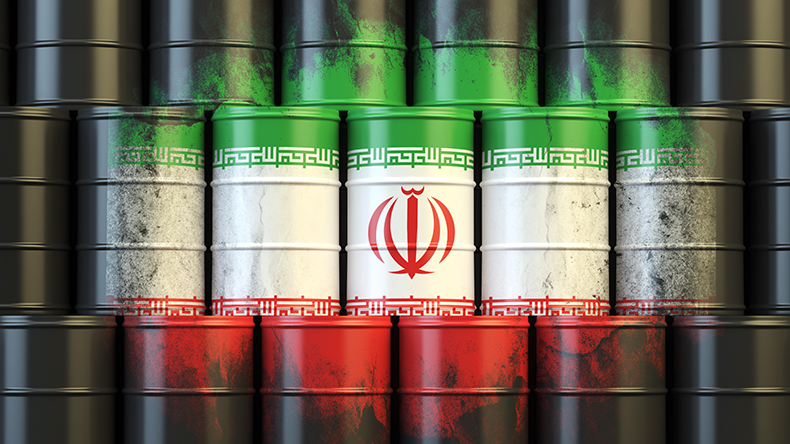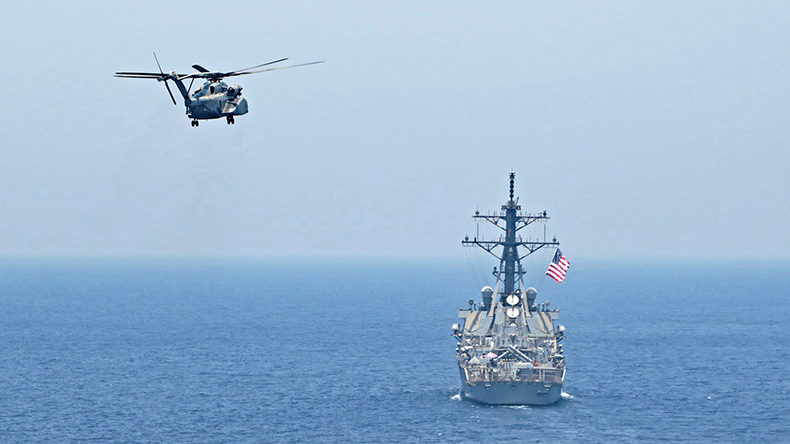Israel-Hamas conflict: ‘Minimal’ impact to commercial shipping, but threat assessment ongoing
As Hamas’ attack unfolded, some vessels shifted away from Israel’s coastline. Elsewhere, several others re-routed, but overall data shows commercial trade has not changed much
Inbound and outbound voyages to Israeli ports nearly halved on Saturday, although not to unprecedented levels. Trade flow resumed to normal volumes on Sunday
HAMAS’ attack on Israel that started in the early hours of Saturday, but having evolved into a full-scale war, it has so far had a limited effect on commercial shipping, but further escalation risks the conflict spilling into the maritime domain.
On October 7, Israeli ports recorded 11 arrivals and seven departures of cargo-carrying ships, according to Lloyd’s List Intelligence data.
On October 6, the ports had a turnover of 30 vessels.
But there have been are several instances since September where inbound and outbound voyages have fallen to similar levels as on October 7, so these are not uncommon.
Container services to Israel appear unaffected to date, but Israel-based container line Zim said it would assist the people and areas affected “in solidarity with the people of Israel”.
“We are constantly assessing the ongoing situation in order to assist and support our employees and communities to the best of our abilities,” chief executive Eli Glickman said in a social media post.
“Our employees’ and the state of Israel security is our top priority. Zim will support the state of Israel in this difficult time, and its first priority will be to allocate the needed resources to aid Israel in this hard and difficult situation.”
Istanbul-based geopolitical consultancy Bosphorus Observer analyst Yörük Işık described the impact on shipping as minimal.
“There might be some capacity issues, for example, with people not showing up for work. It is possible there will be a backlog, but then traffic will resume,” he said.
It is still early days, and it is possible commercial shipping will pull back from Israeli business because of the violence.
EOS Risk Group head of advisory Martin Kelly said: “This conflict will continue on for a while, and the ongoing rocket barrage has the potential to deter further port calls down the line.”
A total of eight ships shifted away from anchorage to move further away from Israel’s coast when Hamas attacked.
Three of these ships have since docked. The other five remain waiting outside Israeli ports and are not indicating a change in destination.
Lloyd’s List understand two vessels, containership Paris Express (IMO: 9447902) and ro-ro Eurocargo Salerno (IMO: 9175494), re-routed to call at Haifa rather than Ashdod, which is near Gaza.
Another vessel that was waiting in Haifa anchorage began spoofing its destination to indicate that it is near the Turkish port of Iskenderun.
Some security analysts are worried about Israel’s potential response and the implications of retaliation.
Control Risks associate director Cormac Mc Garry said: “The concern right now is if the situation escalates. If it is true that Iran was involved then Israel will likely respond in some way and this could have implications further afield like in the Strait of Hormuz. It is possible that a tit-for-tat scenario will emerge and if it does then that could escalate very quickly.”
Sea-Intelligence chief executive Alan Murphy said: “The Israel conflict has the potential of creating instability in the entire Middle East, impacting what is otherwise a strongly growing region.
“A country such as Saudi Arabia will be under pressure in relation to the ongoing peace negotiations with Israel, and possible tensions between Iran and Israel and/or Saudi Arabia, could destabilise the entire region, with long-ranging impact.”


